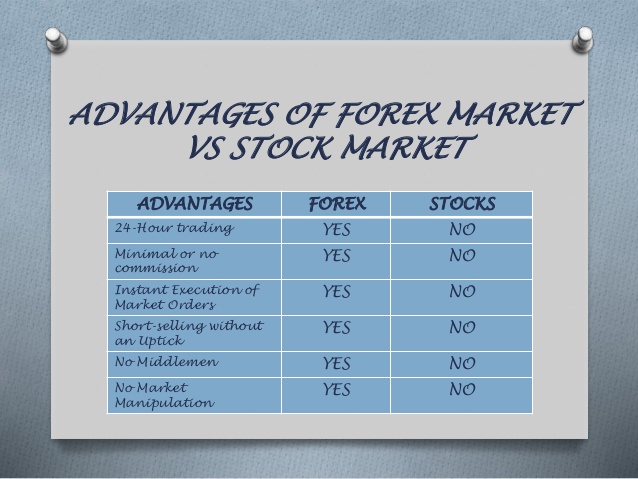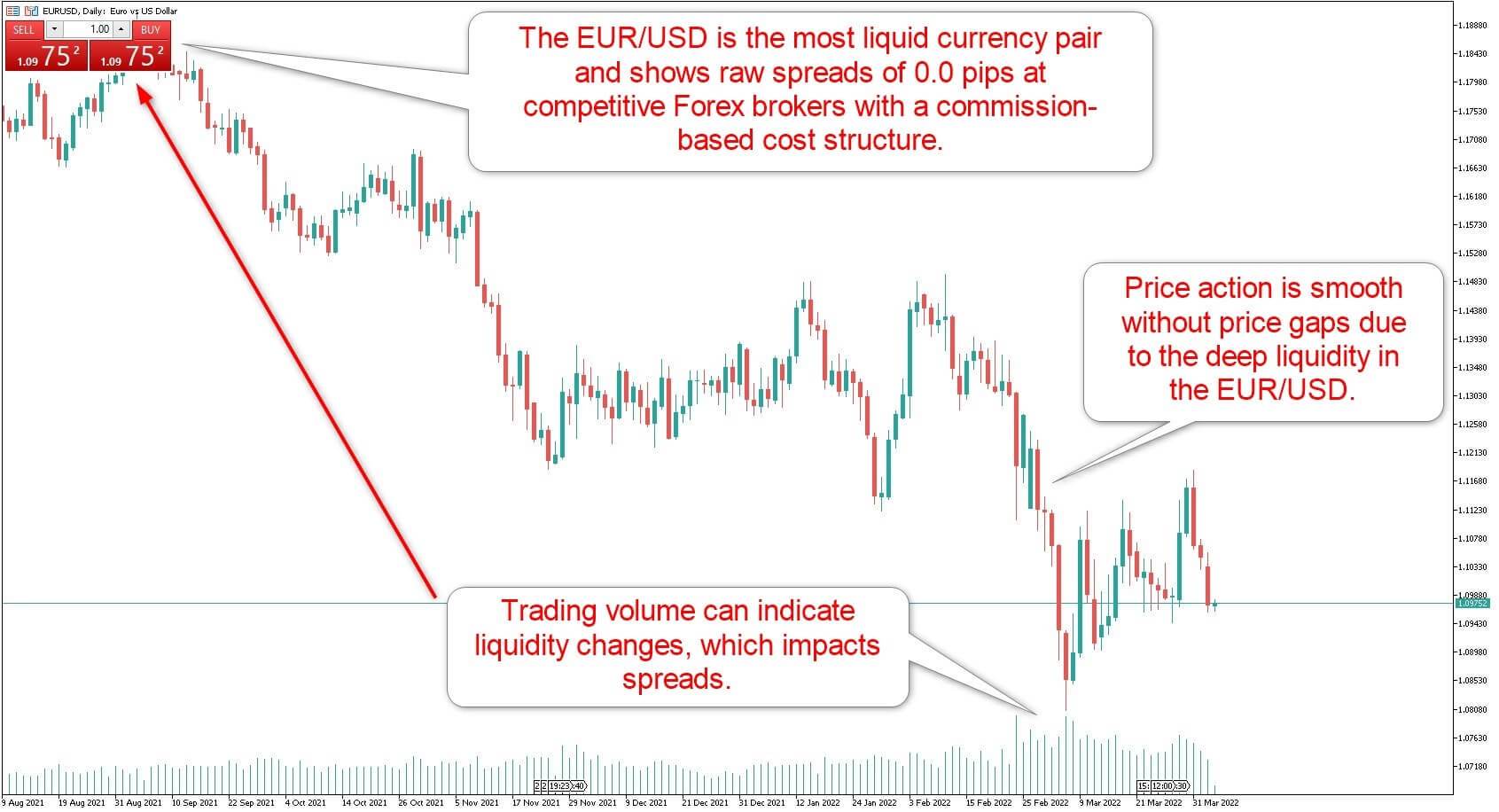
Liquidity can be defined as the ability to sell or buy an asset without it causing a price change. You can use it to see how quickly you make money in a trading or how easily you sell your positions after you lose some.
What is the Forex Volatility?
Forex volatility is the rate at which a currency or a foreign exchange market moves in response to changes in global events, economic reports, wars, and political instability. This can have a major impact on the forex market as a whole and traders should always be aware of the potential for fluctuating prices in their own currency pairs.
What is liquidity in Forex?
Liquidity is the number of traders actively trading currencies on the forex market. This number can change depending on where the forex market is located, and at what time it is open.
The bid-ask difference is the most common way to assess the liquidity of forex securities. It's the difference between the highest price someone is willing to pay for a particular security and the lowest price someone is prepared to sell it for. The smaller the spread the more liquid the asset.

Volume is another way to assess the liquidity of a foreign exchange market. The higher the volume of a security, the more liquid it is.
Forex is one of the most liquid market in the world because banks and traders are constantly involved in buying or selling large amounts of currency. This is an important factor in the forex market because it means there are always traders and banks ready to buy or sell.
If you are new to forex trading, or an experienced trader, the liquidity level of an asset has a significant impact on your ability to make money. If the market isn't liquid, there may not be enough buyers for your orders.
A liquidity provider makes currency markets on behalf of companies, financial institutions and other counterparties. They can negotiate spreads with their clients or other professionals on the forex market.
On the forex markets, liquidity providers usually work with the biggest commercial banks and other institutions. They are generally able to offer more competitive spreads than they could on their own, because they have a significant position in the currencies they make markets on.

You should also be aware that the forex market can be volatile. It can help you to make better decisions when trading.
As well as being the most liquid of all markets, forex also offers investors a low-risk environment, since it is easy to convert money into cash quickly, and to avoid any losses. But traders should be mindful of the risks involved in forex trading, and only make a decision after thorough planning.
FAQ
What is the trading of securities?
The stock market allows investors to buy shares of companies and receive money. Investors can purchase shares of companies to raise capital. These shares are then sold to investors to make a profit on the company's assets.
Supply and Demand determine the price at which stocks trade in open market. The price of stocks goes up if there are less buyers than sellers. Conversely, if there are more sellers than buyers, prices will fall.
There are two ways to trade stocks.
-
Directly from the company
-
Through a broker
How do people lose money on the stock market?
The stock market is not a place where you make money by buying low and selling high. You lose money when you buy high and sell low.
The stock market is an arena for people who are willing to take on risks. They will buy stocks at too low prices and then sell them when they feel they are too high.
They hope to gain from the ups and downs of the market. But if they don't watch out, they could lose all their money.
What is the role of the Securities and Exchange Commission?
The SEC regulates securities exchanges, broker-dealers, investment companies, and other entities involved in the distribution of securities. It enforces federal securities laws.
What is a bond?
A bond agreement between two people where money is transferred to purchase goods or services. Also known as a contract, it is also called a bond agreement.
A bond is normally written on paper and signed by both the parties. This document contains information such as date, amount owed and interest rate.
The bond can be used when there are risks, such if a company fails or someone violates a promise.
Sometimes bonds can be used with other types loans like mortgages. This means that the borrower must pay back the loan plus any interest payments.
Bonds can also raise money to finance large projects like the building of bridges and roads or hospitals.
The bond matures and becomes due. This means that the bond owner gets the principal amount plus any interest.
Lenders are responsible for paying back any unpaid bonds.
Why is a stock security?
Security is an investment instrument that's value depends on another company. It may be issued either by a corporation (e.g. stocks), government (e.g. bond), or any other entity (e.g. preferred stock). The issuer promises to pay dividends to shareholders, repay debt obligations to creditors, or return capital to investors if the underlying asset declines in value.
Are bonds tradeable
Yes, they do! Bonds are traded on exchanges just as shares are. They have been trading on exchanges for years.
The only difference is that you can not buy a bond directly at an issuer. A broker must buy them for you.
Because there are less intermediaries, buying bonds is easier. You will need to find someone to purchase your bond if you wish to sell it.
There are many kinds of bonds. While some bonds pay interest at regular intervals, others do not.
Some pay interest every quarter, while some pay it annually. These differences make it possible to compare bonds.
Bonds are a great way to invest money. In other words, PS10,000 could be invested in a savings account to earn 0.75% annually. The same amount could be invested in a 10-year government bonds to earn 12.5% interest each year.
If you put all these investments into one portfolio, then your total return over ten-years would be higher using bond investment.
What is the difference between stock market and securities market?
The securities market is the whole group of companies that are listed on any exchange for trading shares. This includes stocks and bonds, options and futures contracts as well as other financial instruments. Stock markets can be divided into two groups: primary or secondary. Stock markets that are primary include large exchanges like the NYSE and NASDAQ. Secondary stock markets are smaller exchanges where investors trade privately. These include OTC Bulletin Board Over-the-Counter (Pink Sheets) and Nasdaq ShortCap Market.
Stock markets are important as they allow people to trade shares of businesses and buy or sell them. The value of shares is determined by their trading price. New shares are issued to the public when a company goes public. These shares are issued to investors who receive dividends. Dividends are payments that a corporation makes to shareholders.
In addition to providing a place for buyers and sellers, stock markets also serve as a tool for corporate governance. Boards of Directors are elected by shareholders and oversee management. They ensure managers adhere to ethical business practices. If the board is unable to fulfill its duties, the government could replace it.
Statistics
- Individuals with very limited financial experience are either terrified by horror stories of average investors losing 50% of their portfolio value or are beguiled by "hot tips" that bear the promise of huge rewards but seldom pay off. (investopedia.com)
- US resident who opens a new IBKR Pro individual or joint account receives a 0.25% rate reduction on margin loans. (nerdwallet.com)
- "If all of your money's in one stock, you could potentially lose 50% of it overnight," Moore says. (nerdwallet.com)
- Even if you find talent for trading stocks, allocating more than 10% of your portfolio to an individual stock can expose your savings to too much volatility. (nerdwallet.com)
External Links
How To
How to Invest Online in Stock Market
You can make money by investing in stocks. There are many methods to invest in stocks. These include mutual funds or exchange-traded fund (ETFs), hedge money, and others. The best investment strategy depends on your risk tolerance, financial goals, personal investment style, and overall knowledge of the markets.
To become successful in the stock market, you must first understand how the market works. This includes understanding the different investment options, their risks and the potential benefits. Once you know what you want out of your investment portfolio, then you can start looking at which type of investment would work best for you.
There are three main categories of investments: equity, fixed income, and alternatives. Equity is ownership shares in companies. Fixed income refers to debt instruments such as bonds and treasury notes. Alternatives are commodities, real estate, private capital, and venture capital. Each category has its own pros and cons, so it's up to you to decide which one is right for you.
You have two options once you decide what type of investment is right for you. The first is "buy and keep." This means that you buy a certain amount of security and then you hold it for a set period of time. Diversification, on the other hand, involves diversifying your portfolio by buying securities of different classes. By buying 10% of Apple, Microsoft, or General Motors you could diversify into different industries. You can get more exposure to different sectors of the economy by buying multiple types of investments. It helps protect against losses in one sector because you still own something else in another sector.
Risk management is another key aspect when selecting an investment. You can control the volatility of your portfolio through risk management. If you are only willing to take on 1% risk, you can choose a low-risk investment fund. On the other hand, if you were willing to accept a 5% risk, you could choose a higher-risk fund.
Learn how to manage money to be a successful investor. A plan is essential to managing your money. A good plan should cover your short-term goals, medium-term goals, long-term goals, and retirement planning. Then you need to stick to that plan! You shouldn't be distracted by market fluctuations. Keep to your plan and you will see your wealth grow.